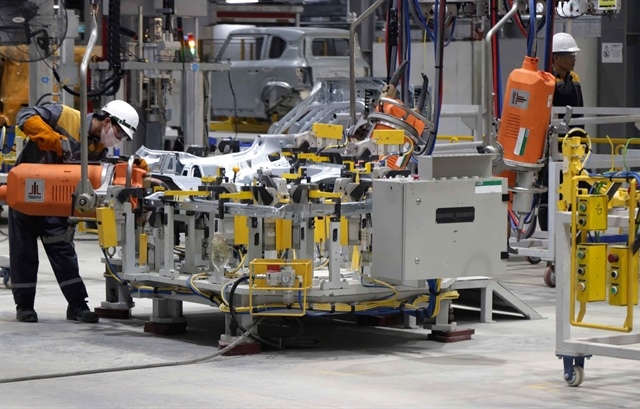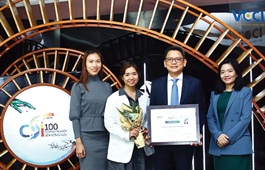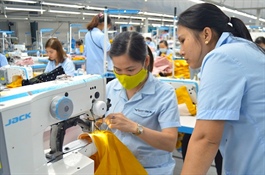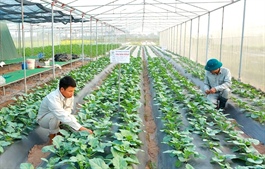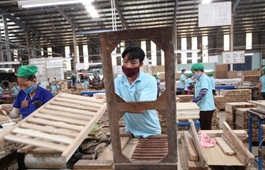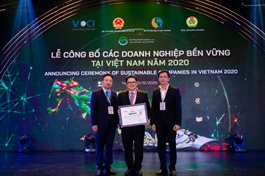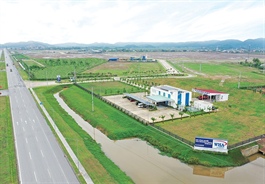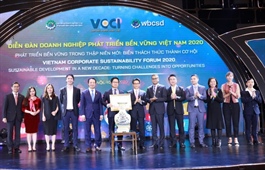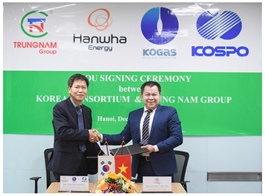Nestlé takes sustainability to next level
Nestlé takes sustainability to next level
In this year’s evaluation of the top 3 sustainable companies 2020 for the manufacturing sector, a lot revolved around companies’ response to the COVID-19 pandemic. How have you adjusted your sustainability and corporate social responsibility activities to this context?
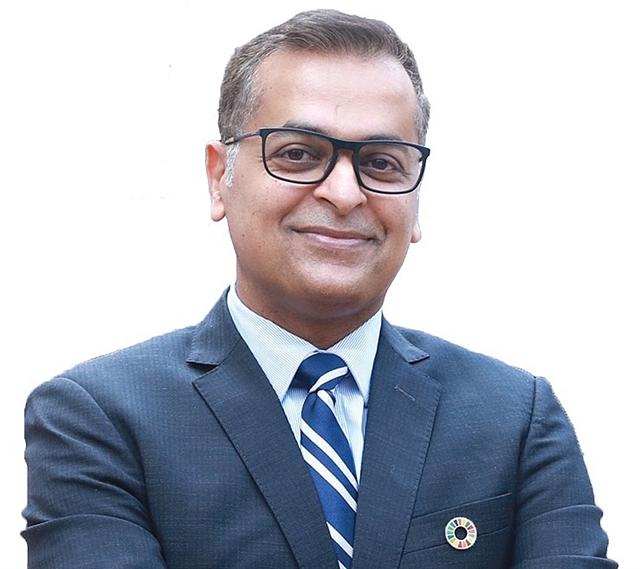
Binu Jacob, managing director of Nestlé Vietnam
|
At Nestlé, sustainability has become even more important in our operations this year, because we saw COVID-19 as a systemic issue driven by a lack of sustainability focus. We saw it as a symptom of the challenges the world is facing and we knew very early on that this will make the sustainability agenda even more important. That is why we never balked from our course, even at the peak of COVID-19.
We have three broad impact areas in sustainability – helping individuals and families lead healthier, happier lives; improving livelihoods of the communities that we work in; and nurturing a healthier planet for our future generations. We use the power of our brands to drive sustainability values – and there has been absolutely no change in these areas.
Within these broader areas, however, certain activities had to be adjusted. For instance, under our Healthier, Happier Lives initiative, Milo programmes were encouraging people to lead more active lives through mostly outside activities. To keep with the time, we created an indoor version, with an app that helps people stay active even at home. We showed them how to convert a dustbin into a basketball hoop and a dining table into a ping-pong table to prove that even if they are forced to stay at home, they do not need to be idle.
During lockdown, many suffered from being unable to spend quality time with their loved ones. To help them, our Maggi brand launched the Cook to Connect programme to virtually connect friends and families to cook meals together.
Each of the Nestlé brands have adapted their strategies, but all are still leading to the same three pillars on which our long-term sustainability strategy rests.
These pillars work towards your 2030 strategy which features some very ambitious targets. What activities are you implementing in Vietnam to realise them?
Our 2030 targets have a sweeping scope, with many different targets. For instance, we aim to help 30 million kids lead healthier, happier lives. In Vietnam, we aim to contribute almost 10 per cent of this – which is proportionately far higher than the size of the market compared to our global operations.
Each of our markets has a specific roadmap that contributes to the global target. For instance, as a leading food and beverage group, creating a circular economy for plastics is a key concern in our operations. In Vietnam, we realised that we have to partner. So about a year and a half back, we partnered with key industry leaders to form Packaging Recycling Organization Vietnam and have been getting more partners on board to promote recycling.
One of our biggest brands in Vietnam is Milo, which uses a great deal of plastic straws like all ready-to-drink products in the market. One problem is that these straws are mostly non-recyclable with virtually no value for garbage collectors, so a lot of them end up as waste in the environment, contributing to our mounting environmental challenge.
So very early on, we at Nestlé decided to convert all of this into paper. However, it took a lot of time to find producers to match the sheer scale of our orders and meet our quality and durability requirements. So far, Milo Breakfast and Nesvita products are 100 per cent paper and by the first quarter next year all of our products will make the shift.
Paper straws are three times more expensive than plastic, and we cannot pass this on to the consumer. Many companies would hesitate to make the switch because of this, but in the longer term, this is better for the country, for the environment, and I am sure it is better for the consumers. I am certain that after a time, consumers will start demanding it.
In your awards acceptance speech, you have mentioned regenerative sustainability as the newest turn in Nestlé’s sustainability philosophy. How are you applying it in your operations?
This thinking has only taken root in the company in recent months as the next step in sustainability. The basic premise of sustainability is “Do not take more than what you can give back”, but the world has gone through such a catastrophe that even if all companies come on board, this will not be enough. The challenge of regeneration is tipping the balance back by finding our way into a cycle where resources are automatically regenerated and renewed.
The idea of regenerative agriculture has been making the rounds for some time now and as the world’s largest food company, we believe we have the scale to make a tangible impact by supporting this trend.
Imagine if we start saying that we will not buy coffee from a farm unless it is grown through regenerative farming. We start putting pressure on ourselves, we pass that on to farmers, who will then be encouraged to adopt regenerative farming practices, bettering the industry.
But it is more than just an idea. We have already set out to have 50 per cent of all agricultural raw materials we buy to come from regenerative agriculture by 2030. We know it is possible because there are pockets of innovation that show that it can work.
There are farms in the US already practising regenerative agriculture and ample case studies suggest that this model is actually more profitable in the long term. Maybe not on the short term, but Nestlé has never been in it for anything but the long term.






